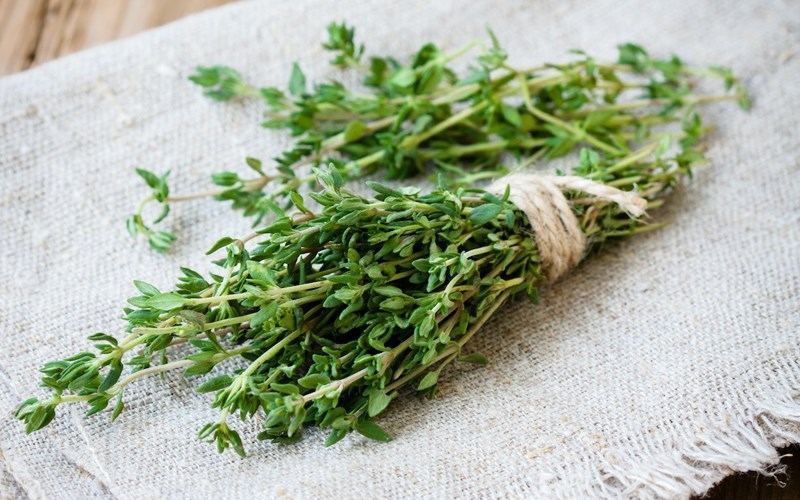If you're looking to improve your heart health, incorporating certain herbs and spices into your diet can be a great place to start. In this post, we'll be discussing seven herbs and spices that have been shown to benefit heart health, including garlic, turmeric, cinnamon, ginger, rosemary, cayenne pepper, and thyme. While these herbs and spices can be a helpful addition to your diet, it's important to remember that they should not be used as a replacement for medical treatment or prescribed medication. As always, be sure to consult with a healthcare professional before making any significant changes to your diet or exercise routine. So, let's dive in and learn more about how these herbs and spices can benefit your heart health.
1, Garlic.
Garlic is a highly nutritious herb that has been shown to have numerous health benefits, including improving heart health. Garlic contains a compound called allicin, which is responsible for many of its health benefits. Allicin has been shown to have anti-inflammatory and antioxidant properties that can help reduce inflammation and oxidative stress in the body. This can be beneficial for heart health since chronic inflammation and oxidative stress are risk factors for heart disease.
One of the ways garlic can benefit heart health is by helping to lower blood pressure. Studies have shown that consuming garlic can help reduce both systolic and diastolic blood pressure, which can be beneficial for people with hypertension. Additionally, garlic has been shown to help reduce the formation of plaque in the arteries, which can reduce the risk of heart disease.
Garlic can also help improve cholesterol levels. Studies have shown that consuming garlic can help lower total cholesterol levels, as well as LDL cholesterol (the "bad" cholesterol) levels. This can be beneficial for heart health since high cholesterol levels are a risk factor for heart disease.
Overall, incorporating garlic into your diet can be a great way to support heart health. Garlic can be easily added to many dishes, such as pasta sauces, stir-fries, and roasted vegetables. Just be aware that raw garlic can be quite pungent, so you may want to start with small amounts and gradually increase as desired.
2, Turmeric.
Turmeric is a spice that has been used for centuries in traditional medicine, and it contains a compound called curcumin, which has been shown to have a wide range of health benefits, including reducing inflammation and oxidative stress in the body. Inflammation and oxidative stress are key factors in the development of many chronic diseases, including heart disease.
Several studies have suggested that turmeric may be beneficial for heart health. For example, curcumin has been shown to help improve cholesterol levels by reducing the amount of LDL ("bad") cholesterol in the bloodstream. High levels of LDL cholesterol can increase the risk of heart disease, so reducing LDL cholesterol can be a key strategy for preventing heart disease.
In addition, turmeric has been shown to have anti-inflammatory effects that may help reduce the risk of heart disease. Chronic inflammation is a key contributor to the development of heart disease, so reducing inflammation can be an important strategy for preventing heart disease.
Overall, while more research is needed to fully understand the role of turmeric in heart health, studies so far suggest that turmeric may be a beneficial addition to a heart-healthy diet. Turmeric can be easily incorporated into your diet by adding it to soups, stews, curries, or smoothies.
3, Cinnamon.
Cinnamon is a delicious spice that has been shown to have many potential health benefits, including benefits for heart health. Cinnamon contains compounds called cinnamaldehyde and cinnamic acid, which have been shown to have anti-inflammatory and antioxidant effects in the body.
One way that cinnamon may benefit heart health is by helping to lower blood pressure. High blood pressure is a major risk factor for heart disease, so anything that can help lower blood pressure can be beneficial. Studies have shown that cinnamon can help reduce both systolic and diastolic blood pressure, which can help reduce the risk of heart disease.
In addition, cinnamon has been shown to improve insulin sensitivity, which is important for heart health. Insulin is a hormone that helps regulate blood sugar levels, and people with insulin resistance are at higher risk of developing heart disease. Studies have shown that cinnamon can help improve insulin sensitivity, which can help reduce the risk of heart disease.
Overall, adding cinnamon to your diet can be a simple and delicious way to support heart health. Cinnamon can be easily added to many dishes, such as oatmeal, yogurt, and smoothies. Just be sure to choose Ceylon cinnamon, which is a higher quality and safer type of cinnamon compared to the more commonly used Cassia cinnamon.
4, Ginger.
Ginger is a spice that has been used for centuries in traditional medicine, and it contains compounds called gingerols and shogaols, which have been shown to have anti-inflammatory and antioxidant effects in the body.
One way that ginger may benefit heart health is by improving circulation. Poor circulation can lead to a variety of health problems, including heart disease. Studies have shown that ginger can help improve circulation by reducing blood viscosity, which can help prevent blood clots and reduce the risk of heart disease.
In addition, ginger has been shown to have anti-inflammatory effects, which can be beneficial for heart health. Chronic inflammation is a key contributor to the development of heart disease, so reducing inflammation can be an important strategy for preventing heart disease.
Ginger may also help lower blood pressure, which is another important factor in heart health. High blood pressure is a major risk factor for heart disease, and studies have shown that ginger can help reduce both systolic and diastolic blood pressure.
Overall, incorporating ginger into your diet can be a great way to support heart health. Ginger can be easily added to many dishes, such as stir-fries, smoothies, and teas. Just be aware that ginger can have a strong flavor, so you may want to start with small amounts and gradually increase as desired.
5, Rosemary.
Rosemary is an aromatic herb that contains a variety of compounds, including rosmarinic acid, carnosic acid, and caffeic acid, which have been shown to have antioxidant and anti-inflammatory properties.
One way that rosemary may benefit heart health is by improving circulation. Poor circulation can lead to a variety of health problems, including heart disease. Studies have shown that rosemary can help improve circulation by relaxing blood vessels and increasing blood flow.
In addition, rosemary has been shown to have anti-inflammatory effects, which can be beneficial for heart health. Chronic inflammation is a key contributor to the development of heart disease, so reducing inflammation can be an important strategy for preventing heart disease.
Rosemary may also help protect against oxidative stress, which is another important factor in heart health. Oxidative stress occurs when there is an imbalance between free radicals and antioxidants in the body, and it can contribute to the development of many chronic diseases, including heart disease. The antioxidant compounds in rosemary may help protect against oxidative stress and reduce the risk of heart disease.
Overall, incorporating rosemary into your diet can be a great way to support heart health. Rosemary can be easily added to many dishes, such as roasted vegetables, meats, and sauces. Just be aware that rosemary has a strong flavor, so you may want to start with small amounts and gradually increase as desired.
6, Cayenne pepper.
Cayenne pepper is a spicy spice that contains a compound called capsaicin, which has been shown to have several potential health benefits, including benefits for heart health.
One way that cayenne pepper may benefit heart health is by improving circulation. Capsaicin has been shown to help improve blood flow by relaxing blood vessels and reducing inflammation. Improved circulation can help reduce the risk of heart disease and other cardiovascular problems.
Cayenne pepper may also help lower blood pressure, which is another important factor in heart health. High blood pressure is a major risk factor for heart disease, and studies have shown that capsaicin can help reduce both systolic and diastolic blood pressure.
In addition to its potential benefits for heart health, cayenne pepper has also been shown to have antioxidant and anti-inflammatory effects, which can be beneficial for overall health.
Overall, incorporating cayenne pepper into your diet can be a great way to support heart health. Cayenne pepper can be added to a variety of dishes, such as soups, stews, and marinades, and can also be used as a seasoning for meats and vegetables. Just be aware that cayenne pepper is quite spicy, so you may want to start with small amounts and gradually increase as desired.
7, Thyme.
Thyme is a fragrant herb that contains a variety of compounds, including thymol, carvacrol, and rosmarinic acid, which have been shown to have antioxidant and anti-inflammatory properties.
One way that thyme may benefit heart health is by improving circulation. Poor circulation can lead to a variety of health problems, including heart disease. Studies have shown that thyme can help improve circulation by relaxing blood vessels and increasing blood flow.
In addition, thyme has been shown to have anti-inflammatory effects, which can be beneficial for heart health. Chronic inflammation is a key contributor to the development of heart disease, so reducing inflammation can be an important strategy for preventing heart disease.
Thyme may also help protect against oxidative stress, which is another important factor in heart health. Oxidative stress occurs when there is an imbalance between free radicals and antioxidants in the body, and it can contribute to the development of many chronic diseases, including heart disease. The antioxidant compounds in thyme may help protect against oxidative stress and reduce the risk of heart disease.
Overall, incorporating thyme into your diet can be a great way to support heart health. Thyme can be easily added to many dishes, such as roasted meats and vegetables, soups, and stews. Just be aware that thyme has a strong flavor, so you may want to start with small amounts and gradually increase as desired.
In conclusion, incorporating herbs and spices into your diet can be a great way to support heart health. The seven herbs and spices we discussed - garlic, turmeric, cinnamon, ginger, rosemary, cayenne pepper, and thyme - all have unique properties that can help reduce inflammation, improve circulation, and lower the risk of heart disease. Remember, while these herbs and spices can be beneficial, they should not be used as a substitute for medical treatment or prescribed medication. Always consult with a healthcare professional before making any significant changes to your diet or exercise routine. We hope you found this information helpful and informative. Thanks for watching!







Comments
Post a Comment